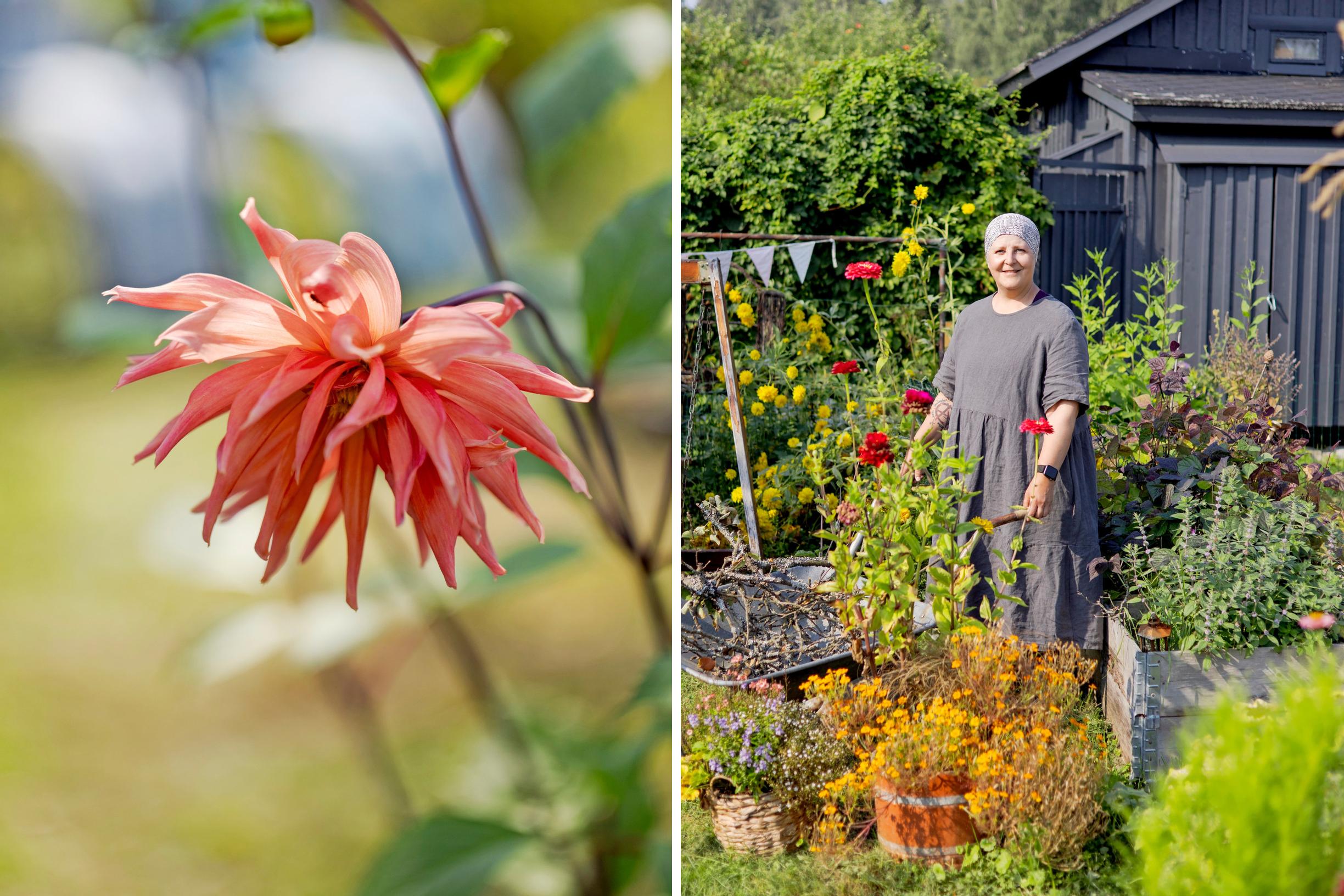
When the world’s turmoil weighs heavily, pastor Tuuli finds peace in her garden—“No insect is too small to be important”
Pastor Tuuli Aitolehti, 52, values the cycle of nature in her garden. Composting is just as enjoyable as sowing seeds and planting seedlings, and small insects are an important ally.

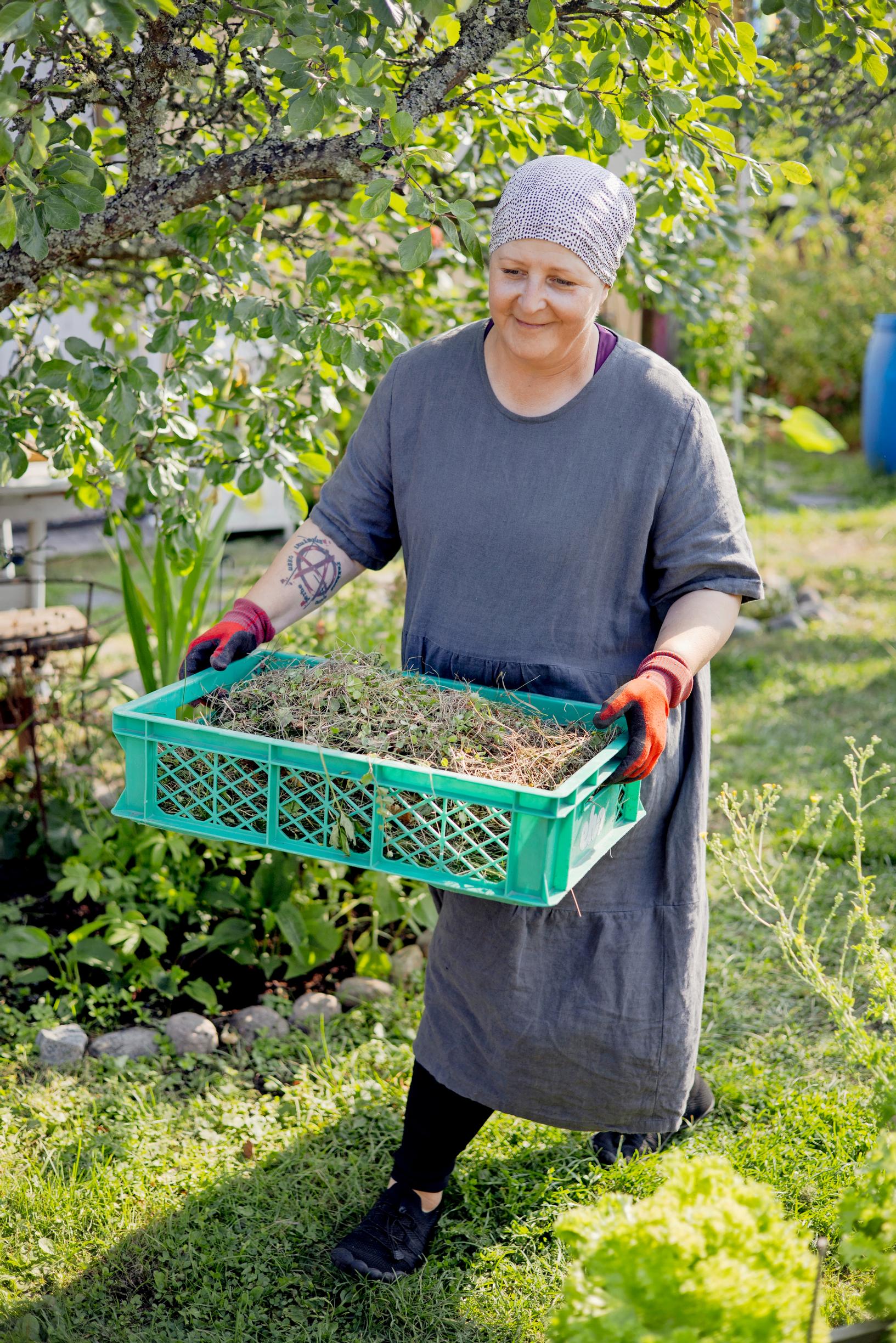
Tuuli, what does the garden mean to you?
In my work as a pastor, I’ve learned to consider many things on a deeper level. For me, everything also has a spiritual dimension beyond the tangible. There’s no insect so small it doesn’t matter to God and this world.
Wars and societal upheavals are stressful, but sinking my hands into the soil always helps me find balance. Building garden beds with compost-based soil is a pleasant way to engage with the world around me and shape my reality to support my wellbeing. Repeating the same tasks and living in tune with the seasons has brought me deep satisfaction and calm.

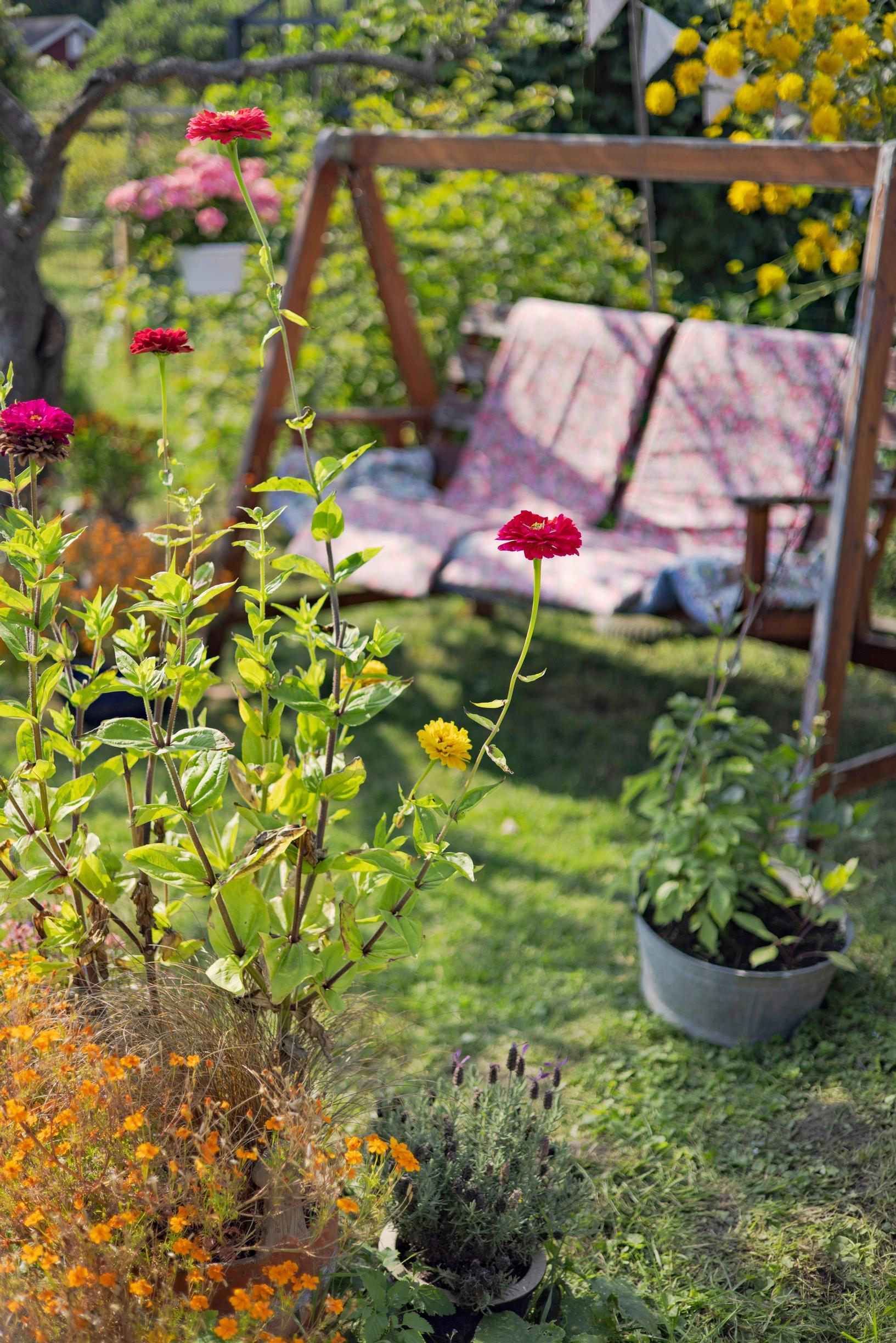
Why did you give your heated composter a name?
My heated composter is the heart of the garden. I can’t imagine gardening without Frank. Composting is a real luxury to me. It’s amazing how beautifully nature works: I put fresh material in, and out comes brown, nearly decomposed matter. Just thinking about it makes me happy!
It makes a huge difference how you nourish your plants. Tending the soil is a holistic practice, and composting is a crucial part of natural growing. One cucumber plant in my garden produced more than 80 cucumbers last summer. It grew in a raised bed made with bokashi-enriched soil, and I also fertilized it with nettle liquid, bokashi liquid, and chicken manure.

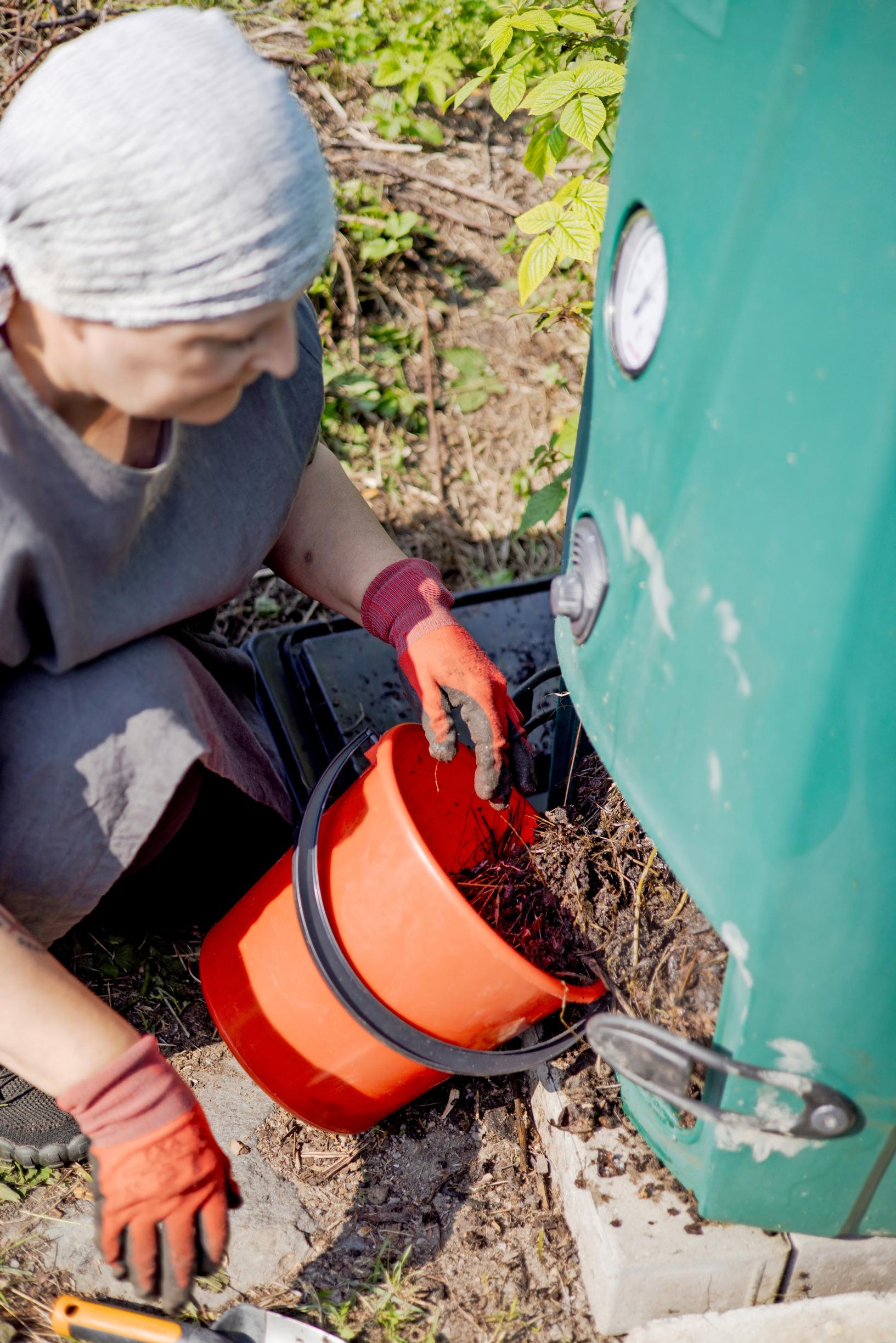
“Repeating the same tasks and living in tune with the seasons has brought me deep satisfaction and peace of mind.”

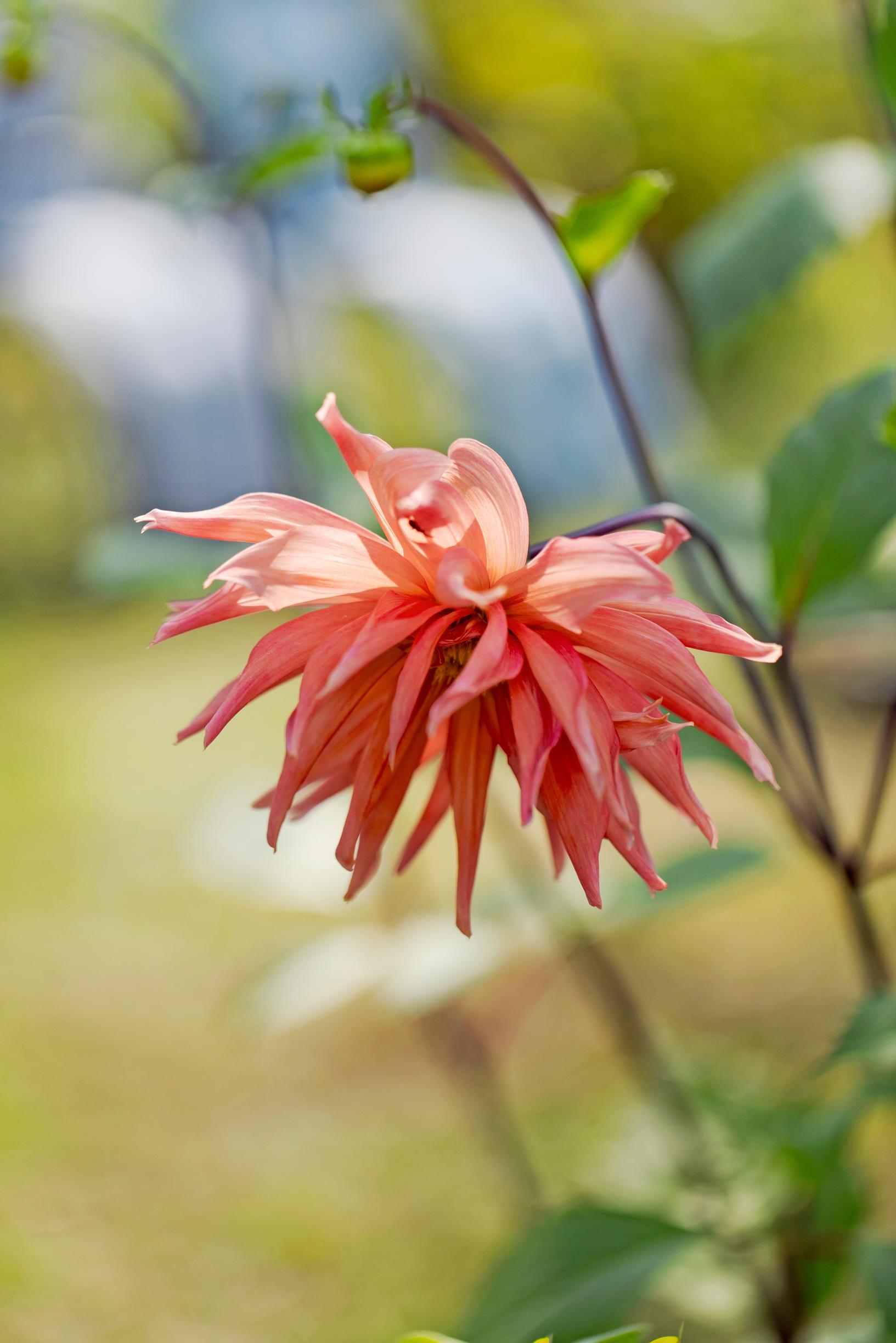
How does composting work in your yard?
I often walk around the yard with a bucket in hand, snipping plants and removing wilted flowers and leaves. You can use every bit of material that accumulates outside.
Composting takes time because I cut the plants into small pieces first. Sometimes I end up with a wheelbarrow full of clippings in front of the compost area, waiting to be processed. I have plenty of time for yard work because I’m on disability retirement due to MS.
When I fill the composter, I make sure to add bedding material evenly. From time to time, I stir it, which feels a bit like making porridge.
I empty the composter several times a year. I feed the secondary composter with what comes out of Frank. Sometimes I also add plant debris and bedding material to that secondary composter, creating the right mix. I empty it once or twice a year. The resulting soil goes into the vegetable garden, under berry bushes, and in flower beds.

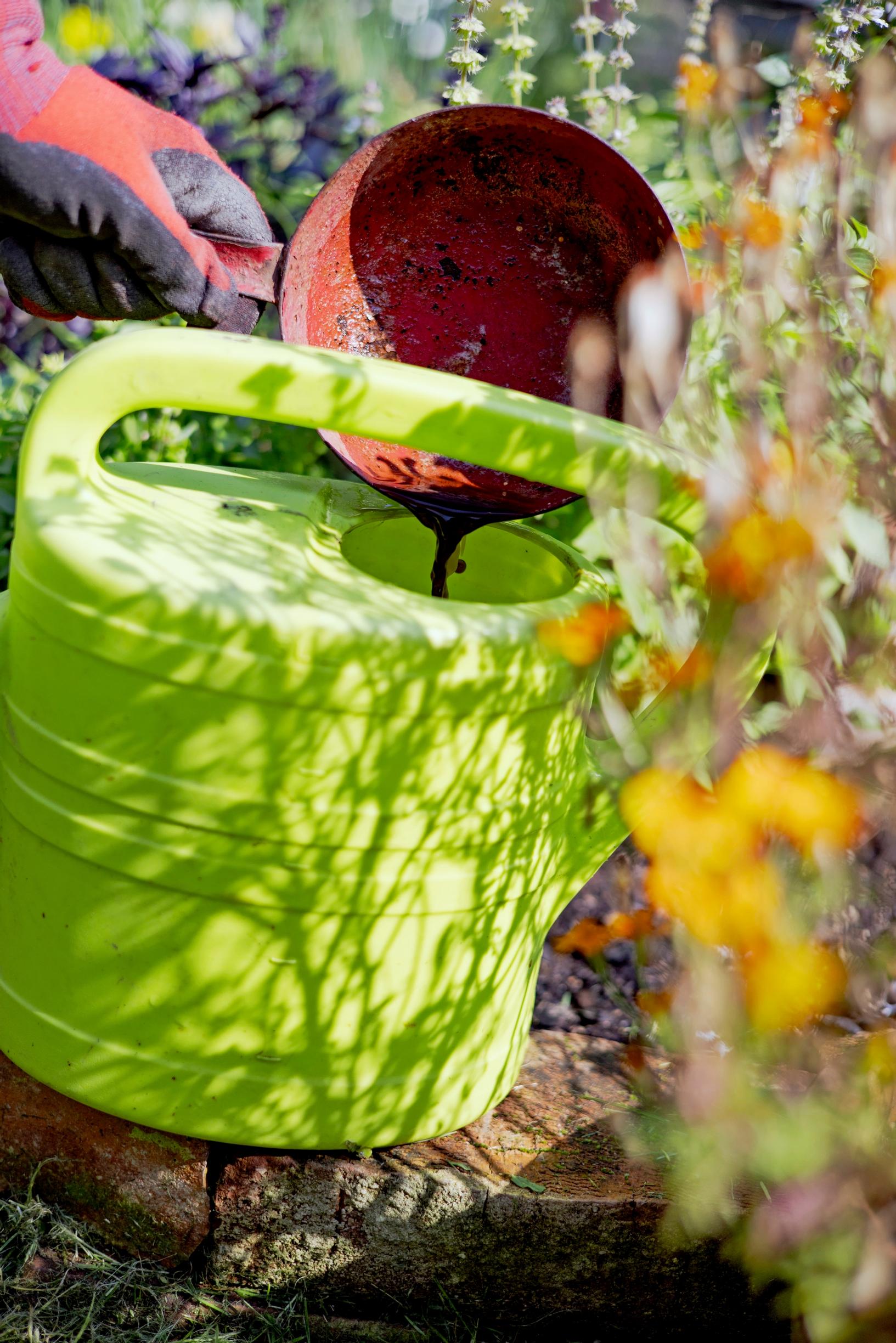

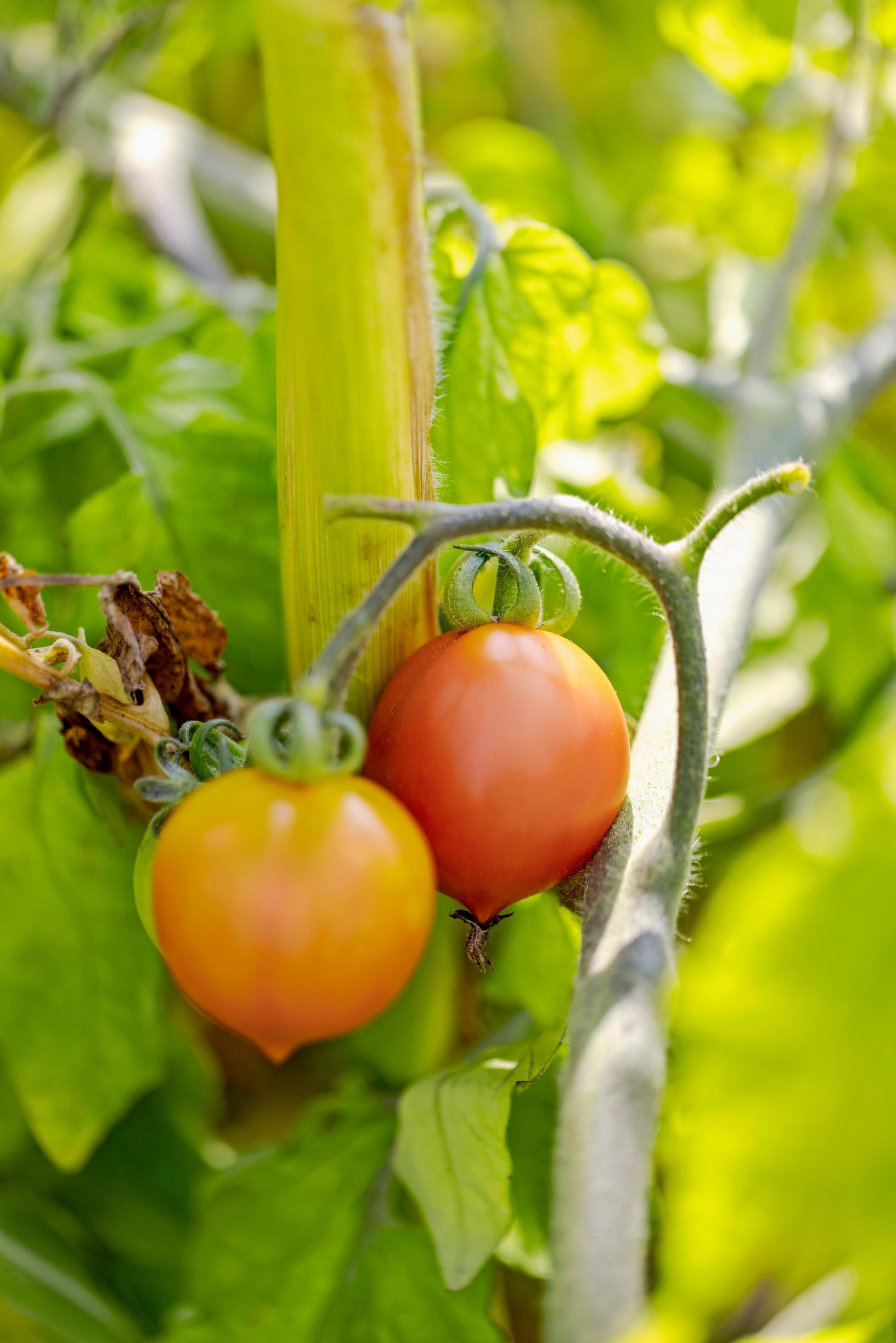
“Small insects are the most important ally in composting. I’ve learned to appreciate creatures like woodlice.”

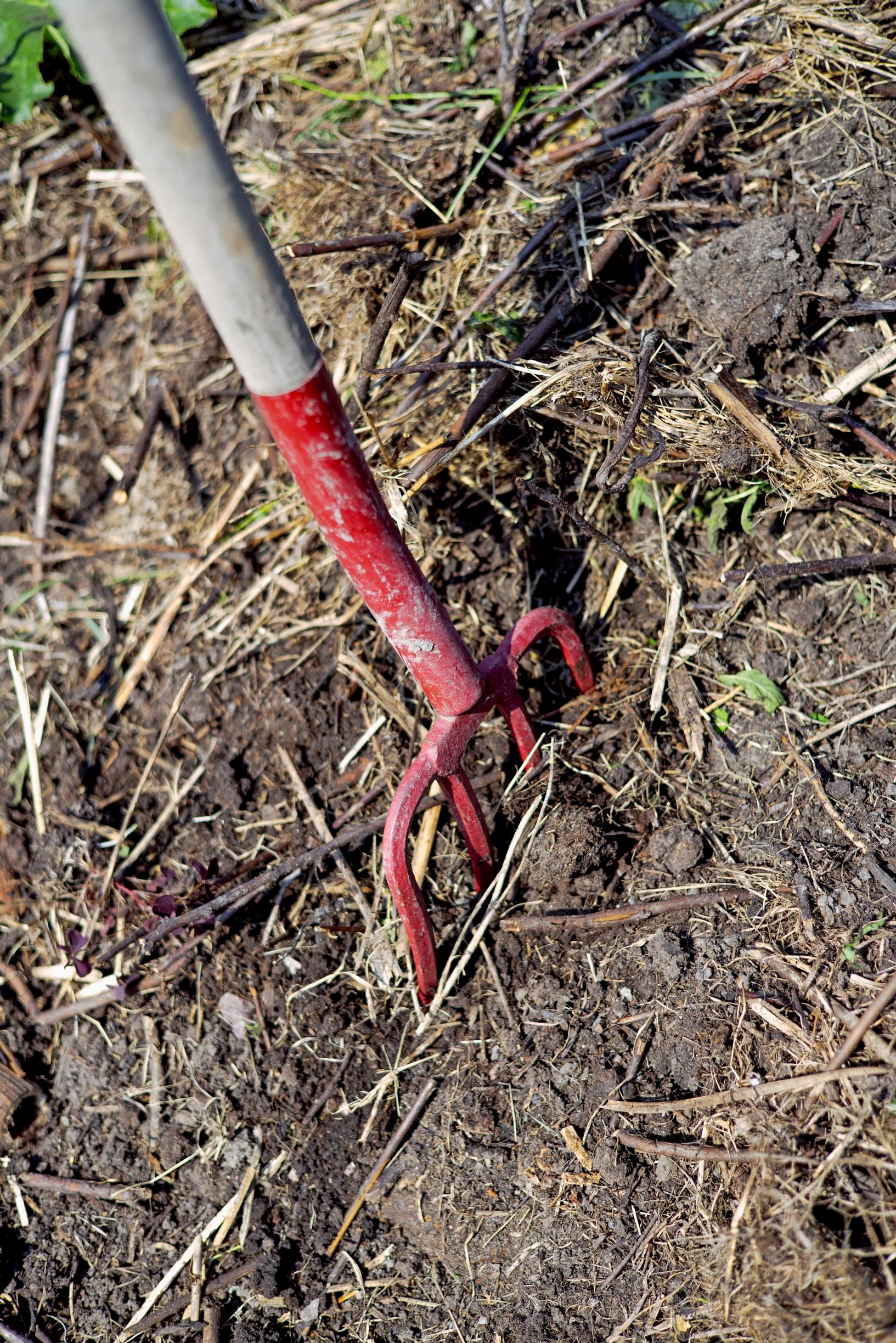
You also use bokashi—how does it work?
With the bokashi system at home, I can use our household kitchen waste in the allotment yard year-round. The waste has to be chopped into a few-centimeter pieces. My family thinks that’s a bit tedious, so we also keep a regular organic waste bin in the kitchen.
I mix the contents of the bokashi buckets into the soil in spring, once the ground has thawed. That way, any waste collected over winter can be used right at the start of the growing season. Bokashi also produces a nutrient-rich liquid, which I give to every plant in the yard—from perennials and summer flowers to apple trees—throughout spring and summer.
The cottage’s previous owner said the old apple tree had never produced much fruit. In spring, I gave it several weeks of bokashi liquid, pouring it under the canopy with a watering can. That same year, it produced a lot of delicious apples.

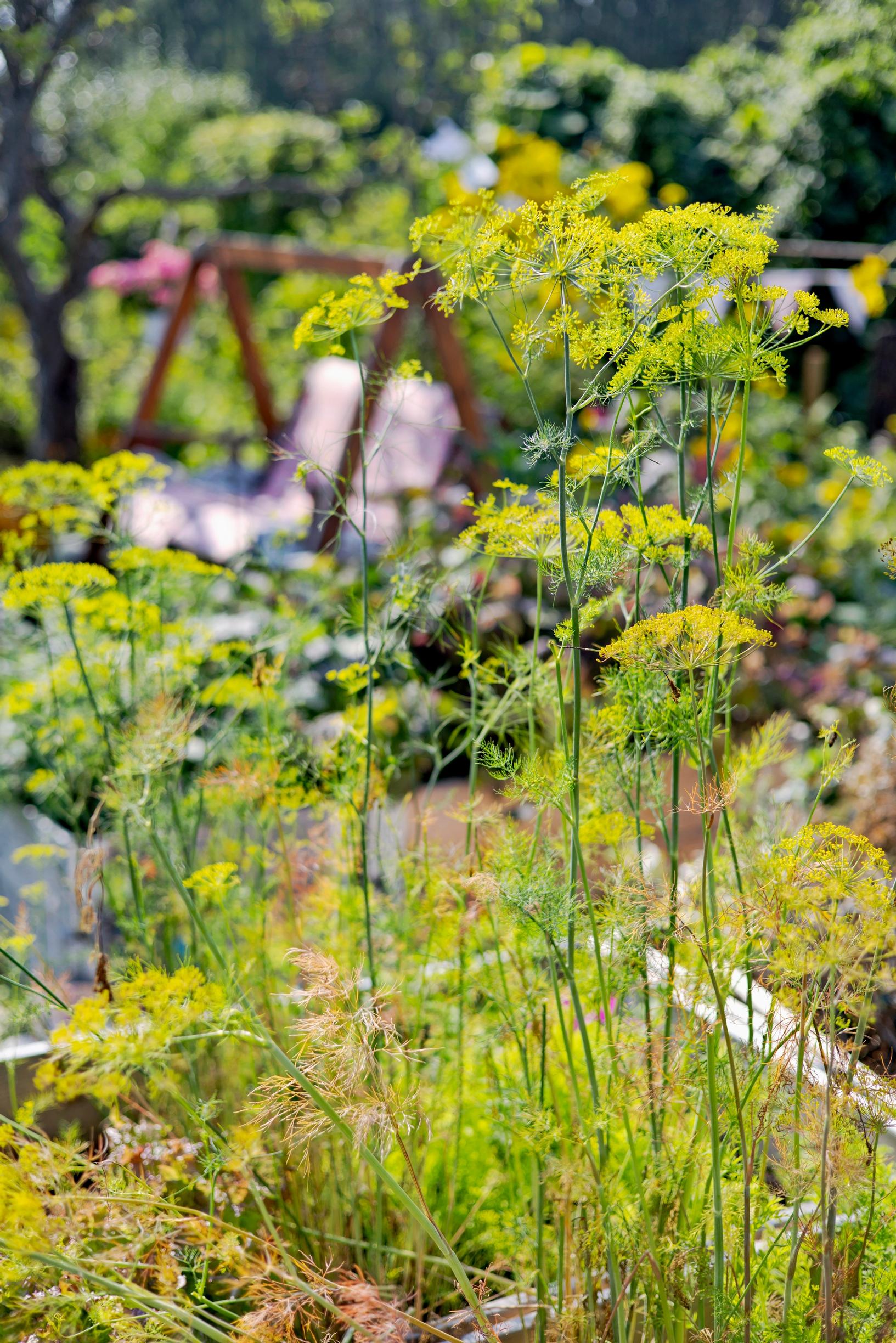

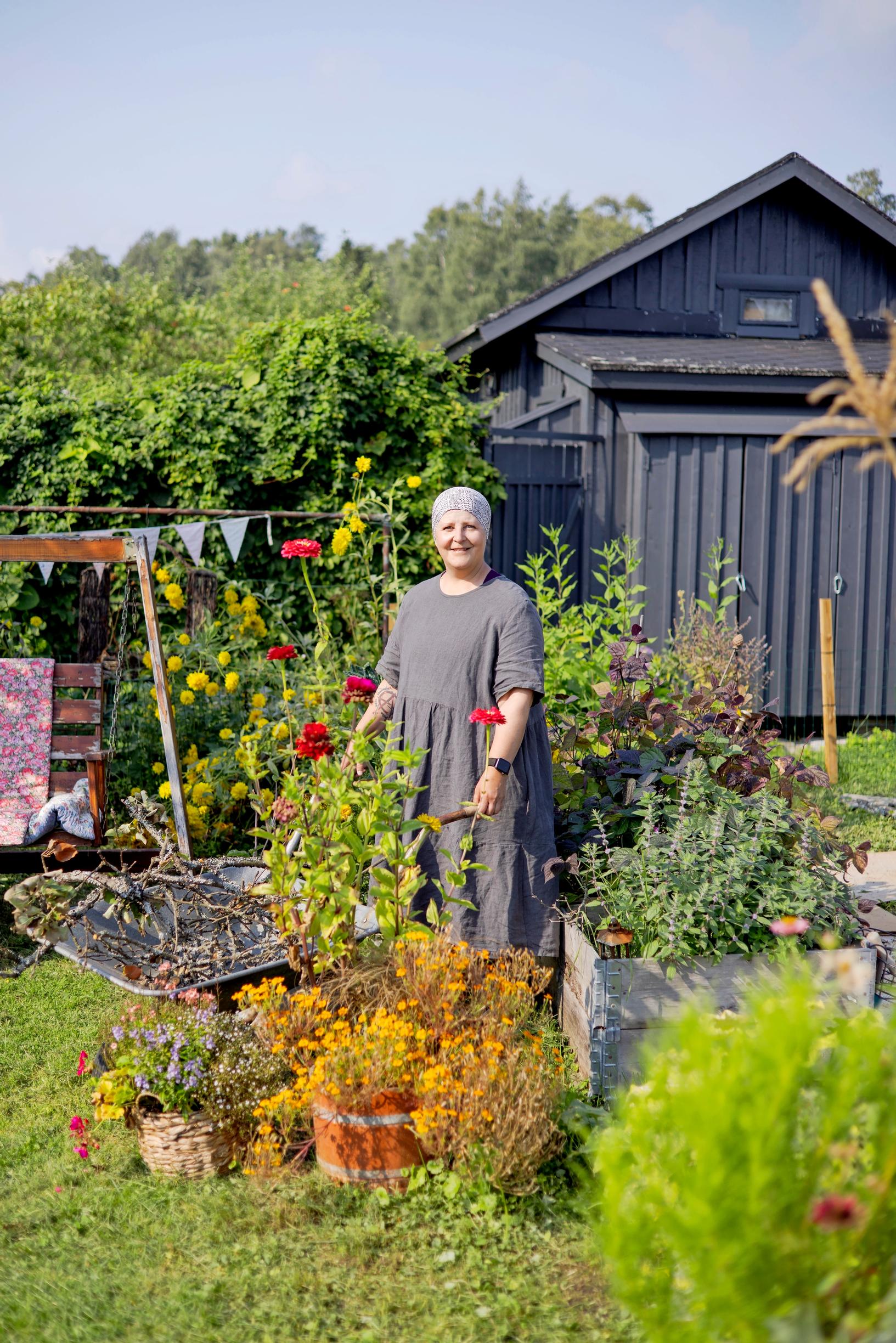
What kind of garden-related plans and goals do you have?
I’ve only spent one summer here so far. I hope to create a functional cycle that uses all organic matter, from outhouse waste to greens. Eventually, I’d like us not to have to buy soil from the store but instead get everything we need from our composters.
Going forward, I plan to disturb the soil as little as possible by digging or turning it. I’m interested in no-dig gardening, where you cover the soil surface with mulch such as leaves and green clippings.
I want the garden to be a place that offers shelter and a home for many different little bugs. They’re the most important ally in composting. I’ve learned to appreciate creatures like woodlice, which do essential decomposition work in the secondary compost.
Tuuli’s tips for caring for your compost
- Cut perennial stems and branches into smaller pieces before putting them in the compost. This speeds up the composting process.
- Bedding material is crucial. Whenever you add kitchen waste to the composter, add about one-third or even half as much bedding.
- In winter, the heated composter goes dormant when there’s no waste to process. But once the weather warms up, it comes back in full swing.


